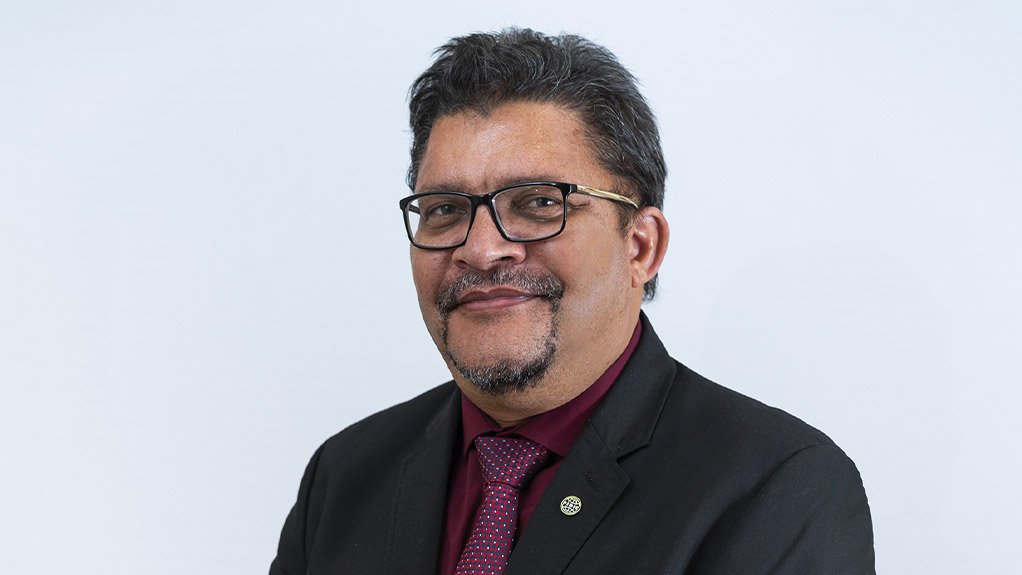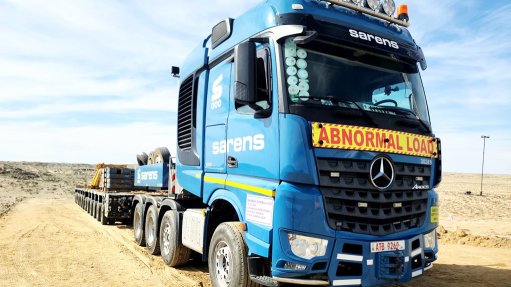Changes required to deal with municipal issues


CHRIS CAMPBELL While municipalities are facing many challenges, there is great opportunity to create change now.
The dismal performance of municipalities in infrastructure and service delivery in South Africa can be attributed to the lack of technical capacity and competency in municipalities, says association Consulting Engineers South Africa CEO Chris Campbell.
He believes that this issue dates back to the decision, made in the mid-nineties, for municipalities to outsource technical services.
“What we are seeing now is the long-term effects of a de-professionalising of the State, which has had the worst impact at the municipal level because of the eroded technical capacity in municipalities,” says Campbell.
This also includes the over-outsourcing and displacement of those with experience, which had affected the institutional memory that should have been retained in-house, he adds.
Moreover, the absence of people with technical knowledge and institutional memory to transfer skills and knowledge within local government creates an issue. This is because incumbents are then deployed to manage senior positions related to service delivery and infrastructure management and have been placed in positions where they have to run service delivery programmes.
“They are often placed in these positions, with little knowledge of, and no background in, the state of local infrastructure and subsequent display an inability to determine what is required.”
“About 27 years later, there has been a change in thinking. This has spurred on the need for development of new recruitment processes and a need for professionalising the public sector, which is currently being driven through the Public Service and Administration Department through government office the National School of Government,” explains Campbell.
He believes that, while some of the changes required in recruitment may happen, change within the system may not happen as urgently as it is needed.
“If the change is to happen, it will require strong political will to ensure that technical departmental heads are indeed more competent than the incumbents,” he adds.
There is also a great need for engineers working for municipalities to provide the technical support required to build capacity.
“Should this change take place there will be a lot of positions available to develop and retain technical experts to ensure adequate infrastructure and service delivery,” says Campbell.
For instance, even service delivery such as refuse collection requires technical expertise to optimise the most effective and efficient collection and disposal of refuse, explains Campbell. The same applies to the sustainable provisioning of water, electricity and roads.
To successfully implement refuse removal, engineers are required to consider traffic, vehicle type, collection operations and other variables to ensure the most effective route in terms of operational efficiency. They also need to ensure routine coverage of all the areas within a certain period to avoid any collection backlogs which may lead to increased health and safety risks, explains Campbell.
Therefore, something that many take for granted, such as refuse collection, requires engineers for implementation, he adds.
He also cites the roads as an example of the underlying issue of a lack of technical competence. “There are a lot of potholes, which is indicative of a loss of expertise in the engineering capacity that would be able to manage and identify the cause of a pothole and address the situation sustainably”.
The importance of technical expertise in this regard is not only in identifying the issue and determining a solution, but also dealing with it in a sustainable manner, which requires engineering expertise.
“For example, one needs to know if a road is at the end of its surfacing life and needs to be resurfaced or resealed, or if it has reached the end of its trafficked life. In these cases, it may have to be completely reconstructed with stronger layers of material to carry the growth in utilisation from a vehicle frequency and legal loading perspective, which is what is often missed. This is owing to the gap in technical professional proficiency in the public sector,” adds Campbell.
While there are people employed to deal with the infrastructure and services of municipalities, Campbell emphasises the need for more engineering capacity to assist in the relevant planning and cost-effective execution management, which includes ongoing maintenance.
Space for Change
While municipalities are facing many challenges, Campbell believes that there is great opportunity to create change now.
With very few projects under way in the private sector and the high number of engineering graduates who are currently unemployed, there is an opportunity for municipalities to tap into this potential and allow the graduates to grow and learn over time, he adds.
“If this is coupled with exposure to appropriate mentorship so in the future these graduates are also able to mentor the next generation of public sector engineering professionals, while being the future custodians of public infrastructure, they will be able to deal with the issues of future service delivery and the management of public infrastructure which will allow the infrastructure lifecycle to develop,” Campbell concludes.
Article Enquiry
Email Article
Save Article
Feedback
To advertise email advertising@creamermedia.co.za or click here
Press Office
Announcements
What's On
Subscribe to improve your user experience...
Option 1 (equivalent of R125 a month):
Receive a weekly copy of Creamer Media's Engineering News & Mining Weekly magazine
(print copy for those in South Africa and e-magazine for those outside of South Africa)
Receive daily email newsletters
Access to full search results
Access archive of magazine back copies
Access to Projects in Progress
Access to ONE Research Report of your choice in PDF format
Option 2 (equivalent of R375 a month):
All benefits from Option 1
PLUS
Access to Creamer Media's Research Channel Africa for ALL Research Reports, in PDF format, on various industrial and mining sectors
including Electricity; Water; Energy Transition; Hydrogen; Roads, Rail and Ports; Coal; Gold; Platinum; Battery Metals; etc.
Already a subscriber?
Forgotten your password?
Receive weekly copy of Creamer Media's Engineering News & Mining Weekly magazine (print copy for those in South Africa and e-magazine for those outside of South Africa)
➕
Recieve daily email newsletters
➕
Access to full search results
➕
Access archive of magazine back copies
➕
Access to Projects in Progress
➕
Access to ONE Research Report of your choice in PDF format
RESEARCH CHANNEL AFRICA
R4500 (equivalent of R375 a month)
SUBSCRIBEAll benefits from Option 1
➕
Access to Creamer Media's Research Channel Africa for ALL Research Reports on various industrial and mining sectors, in PDF format, including on:
Electricity
➕
Water
➕
Energy Transition
➕
Hydrogen
➕
Roads, Rail and Ports
➕
Coal
➕
Gold
➕
Platinum
➕
Battery Metals
➕
etc.
Receive all benefits from Option 1 or Option 2 delivered to numerous people at your company
➕
Multiple User names and Passwords for simultaneous log-ins
➕
Intranet integration access to all in your organisation


















